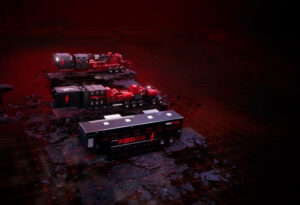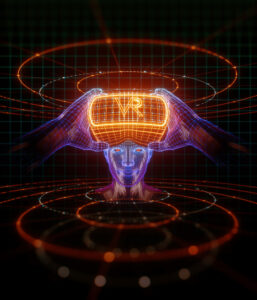Video games, as a whole, are booming, which leads to the use of these in multiple industries. The growth has various factors – mobile gaming and eSports being top. Besides the apparent popularity factor in gaming, video game design and development provide many advantages to multiple industries.
The game design services allow companies to give customers and employees a safe, virtual setting to interact thoughtfully, make judgments, and test products, services, or training environments. Thus, it creates a productive, exciting environment.
Let’s look at all the applications game design can use in other industries.
Game Design For Medical Use
Medical skills can improve from game design. For example, medical students can use practice visits through video; military personnel can train through digital training in specially made games. Video game design can be a mighty instrument to capture the user’s interest across multiple specialties.
Game Design For Auto Industries
Gaming technology paired with powerful virtual reality graphics can solve issues faced in automotive design, testing, and more. Game engines allow car manufacturers to develop vehicle functionality designs using digital twins. In a recent software report, 50% of respondents from the automotive industries showed interest in using game engines and game design to help enhance simulations – this is rather useful for creating immersive VR experiences that simulate the design of new vehicles.
Game Design For Industrial Companies
Game engine technology and design can also solve industrial challenges because game engines help customers go to market faster. Combined with game design, VR allows simulation and modeling functions to be run on game engine software to model real-life functionality for product testing, system debugging, and real-life physics to model products. This design and software provide quicker solutions to problems, allowing products to market faster and become available to consumers sooner.
Game Design For Engineering
With the realistic physics and data pulled into the video gaming design and engines, engineering companies can see a visual representation of the physical world to provide data testing, engineering diagnostics, and more. These tools can come in handy for engineering companies to offer tests and training before rolling out the product or service to the consumer. The advanced technology that has perfected VR and AR with game engine technology is helpful for companies with challenging scenarios to test or engineers looking to test out and monitor cities’ traffic flow.
Conclusion
Finally, video games have always been a great source of entertainment, so rolling their positive effects into real-life companies could be the key to a better future. Positively using video games’ concepts, elements, and design can prove advantageous across a wide range of industries. We’ve included a few examples above, but to briefly touch on other sectors that can significantly benefit from video game design, include – tourism, television, art, education, science and research, and even real estate. Immersive digital experiences produce an array of possibilities for products, services, and more tailored to each company’s or industry’s needs.
The final result can improve customer satisfaction, products, profitability, and services.








